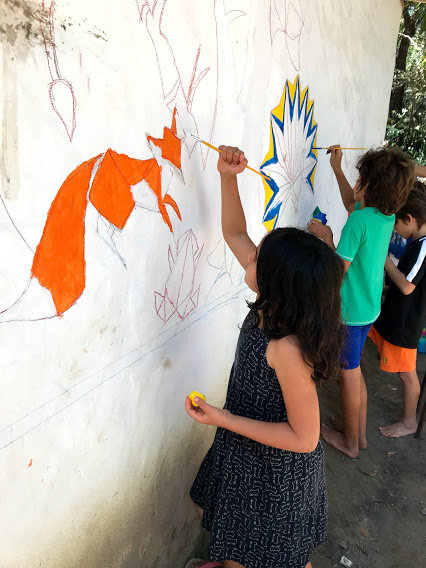
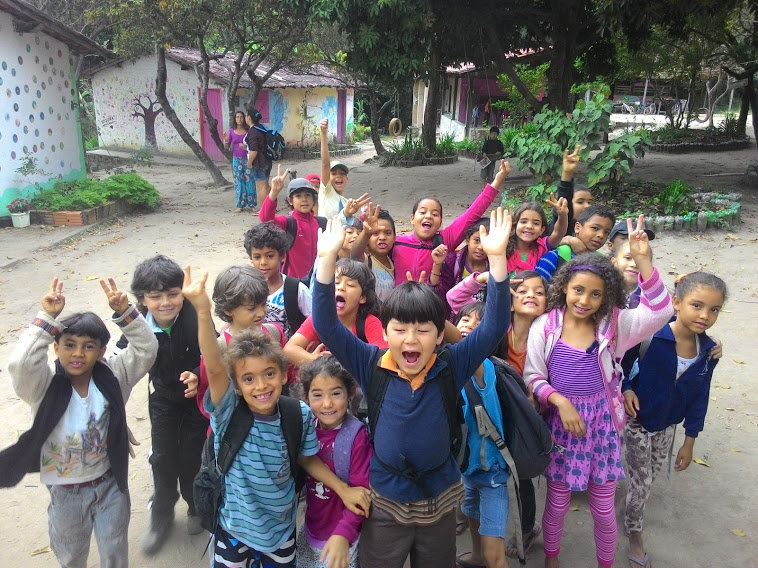
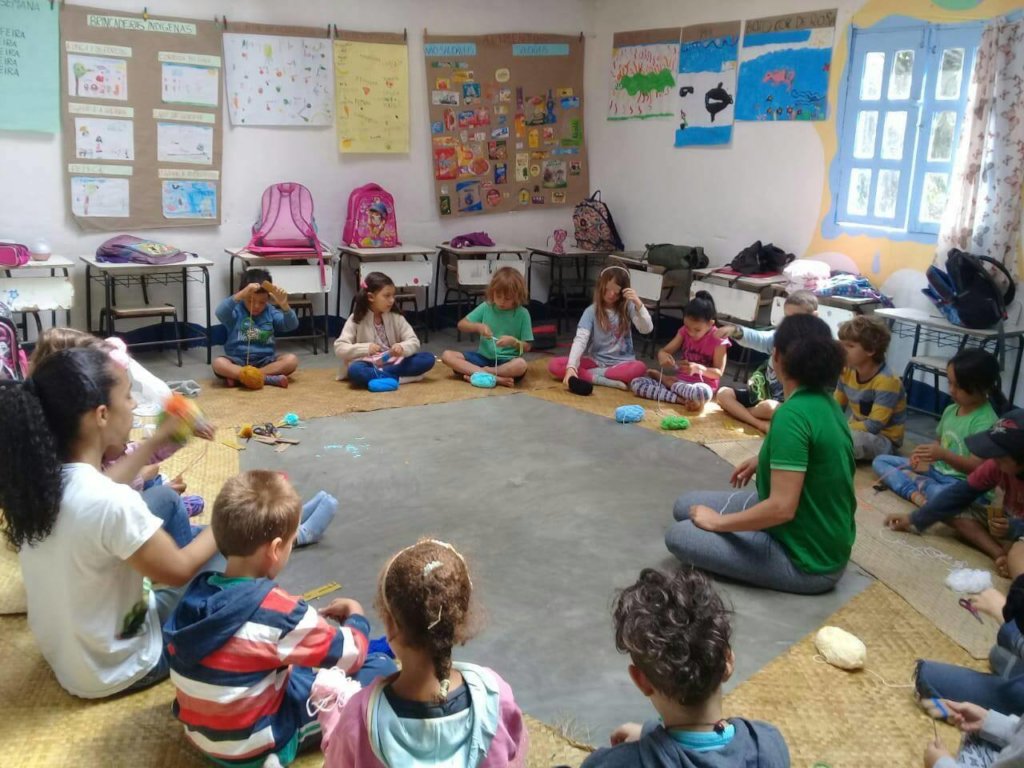
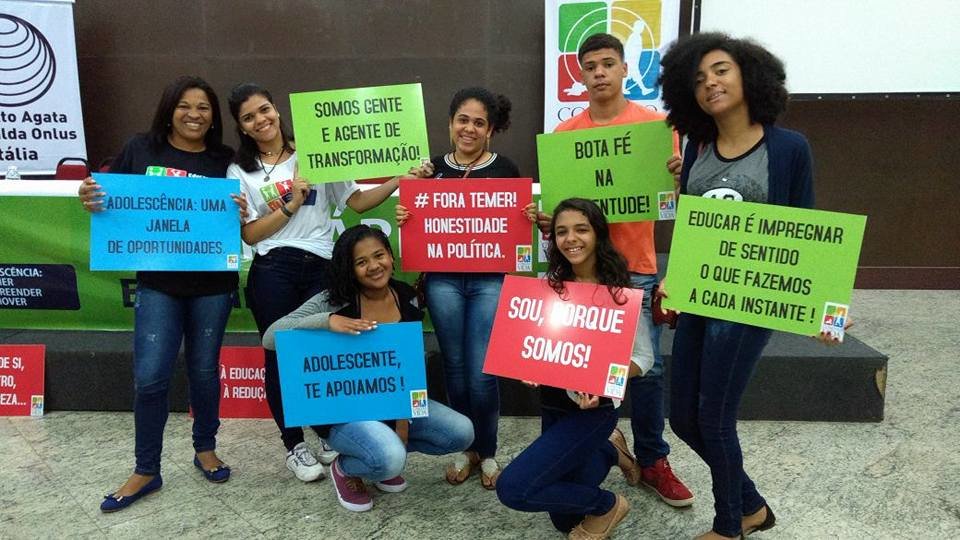
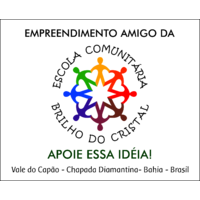
The Community School 'Brilho do Cristal' (The Crystal's Sparkle) has as a general objective: To guarantee the rights attributed to children in the constitution, enabling the development of human potential and the construction of knowledge of oneself and the world, in a contextualizing, creative, holistic and emancipatory way. Throughout the history of the School (founded in 1992) we have built our pedagogical autonomy with collective planning, in continuing education and in the pedagogical practice reflected. We also enable and promote collective action such as active participation in assemblies, task forces, bazaar, parties, finally in the fight for better working conditions. O... read more The Community School 'Brilho do Cristal' (The Crystal's Sparkle) has as a general objective: To guarantee the rights attributed to children in the constitution, enabling the development of human potential and the construction of knowledge of oneself and the world, in a contextualizing, creative, holistic and emancipatory way. Throughout the history of the School (founded in 1992) we have built our pedagogical autonomy with collective planning, in continuing education and in the pedagogical practice reflected. We also enable and promote collective action such as active participation in assemblies, task forces, bazaar, parties, finally in the fight for better working conditions. Our biggest obstacle remains financial and this lack of resources affects every dimension of the School. The Community School aims to promote sustainable regional development and improve the living conditions of the community in an ecologically viable way. It does this in part by promoting environmental education and stimulating initiatives aimed at the sustainable development of the community and valuing the local economy. The school aims to prepare the next generation and by extension the wider community to be economically independent guardians of the ecology. This is crucial to the mission of the school due to its unique geographical position serving a community located in The Chapada Diamantina National Park in the region of the State of Bahia, Brazil. The park is in the Caatinga biome, and covers 152,142 hectares (375,950 acres) and is administered by the Chico Mendes Institute for Biodiversity Conservation. It has become a hugely popular tourist destination which, although bringing a new source of income to the area is threatening the economic stability and lifestyle of the native community. This community now faces two big challenges; One is the impoverishment of the native community as capital and financial interests move in and buy up their land; building hotels, bed and breakfasts, restaurants, establishing tourist agencies, completely dominating the tourist industry and redirecting all the economic gains to an invading middle class equipped with financial and cultural capital. The native community are increasingly finding themselves marginalised, working in low paid, casual unskilled jobs with little prospect of improvement or progress and little bargaining power. The second problem stemming from the 'eco' tourist industry is the destruction of that very environment people have come to visit. Left to the free market the economic growth of the area will not take place (and is not taking place) in a sustainable way and will neither benefit the entire community nor protect the ecology. The school seeks to empower its students with an understanding of the environment and how to protect it with knowledge of sustainability and permaculture practices. We believe that the commitment of education is to form emancipated students, aware of their social function and capacity as individuals who think, intervene and create. We believe that education can contribute to the transformation of the current society. Individuals who identify with the school's objectives and are willing to support them, whether teachers, parents or other members of the community through membership, are able to participate in the entity as partners. The entity is built by an unlimited number of members without distinction of sex, nationality, profession, religious or political creed. The pedagogical dimension of the School is based on Vygotsky's socio-interactionism. We agree that human development takes place in human relations according to the historical and social context of the group. Besides Vygotsky, Paulo Freire also remains one of our references, especially when he defends contextualization, problematization and dialogue as fundamental in a liberating pedagogy. Methodologically we work based on pedagogical projects mediated by aesthetic literacy and environmental education. The school's pedagogical coordination is collective, through collective planning, semiannual evaluations, continuing education and semiannual pedagogical weeks. At the heart of the school's philosophy is the notion of community. It represents the dialogue between school and the collective and the capacity to overcome challenges, stronger together, united for a cause. We seek to establish a close relationship between school, family and community, in all dimensions of the School: pedagogical, administrative and economic. Such relationships take place through the activities such as artistic presentations, voluntary task forces, assemblies, pedagogical meetings, active participation in the daily maintenance of the school and celebrations. Because it is a community school these actions become indispensable, since they are the ones that feed the collective power and dialogue with the community. The administrative dimension of the School is also carried out collectively and with an emancipatory perspective. Although we have an administrative coordinator at the School, this management occurs collectively, that is, all the questions of the School are discussed and forwarded with the collective of the School, which takes place in the collective pedagogical spaces: collective planning, continuous formation and assemblies of the Association of the Brilho do Cristal. The current overriding most pressing issue for The Association of Parents, Teachers and Friends of the Brilho do Cristal Community School is to create a sustainable source of funds so that the school can operate autonomously. The community school has previously relied heavily on funds from an Italian group called Conexao Vida with primarily 'sponsor a child' type initiative but these funds are set to end this year (2021) and the school will be in crisis if another sustainable source isn't found. Although any funds are welcome, ultimately it will not be enough to raise one off charitable donations. To survive the school needs to create a sufficient, regular, ethical and sustainable source of income. We have several ambitious ideas to realise this goal and hope that the support and training of GlobalGiving with their knowledge and the digital platform it provides will enable us to carry out these ideas and reach a wider support base. There is a regular flux of 20,000 plus visitors per year to The Vale do Capao taking part in 'eco-tourism', enjoying the natural treasures in the region such as treks, mountains and waterfalls. The mission now must be to capture funds from these visitors, by educating them in the role they currently play and could play in the future in either preserving or destroying the environment they seek to enjoy. The Association is exploring an idea inspired by the 'FairTrade' model whereby products and services in the Vale which fit a certain criteria will be awarded the 'badge' of the school and be recognisable to tourists as an ethical purchase which simultaneously supports the Community School, supports local tradespeople and promotes the use of local produce. In this way as well as providing a regular income for the school, we hope to promote local tradespeople and secure for them fairer pay and working conditions. We are currently exploring building a 'shop' or market place where local residents will have a platform to display and trade produce and artefacts whilst charging less commission than the supermarkets. This will be accompanied with a large marketing/advertising campaign to promote the logo, explain its purpose and encourage visitors and residents to give the local economy preference and support by seeking out these products. We believe with this model we can offer cheaper produce to the buyer at higher profits for the tradesperson whilst taking a contribution for the school. We plan to launch this initiative over the following months with the first meeting open to the community on 10th February 2021. We are also committed to learning and growing in our online skills to use social media platforms and digital marketing to capture regular funds and subscriptions from friends and supporters through the GlobalGiving platform and by launching a 'Sponsor a Child' initiative where members will make monthly payments towards the cost of education of a child at the school. We will also launch online campaigns to raise money for specific projects and resources such as solar panels, classroom resources, tools etc


Each of GlobalGiving’s nonprofit partners is required to send quarterly donor reports detailing the impact of their work. Here are some of their recent updates:
By Leticia Chaves Monteiro | Project Leader
Dear supporter,We begin this report by thanking you immensely for your contribution, which makes it possible to continue our environmental education and sustainability project, valuing quality... Read the full report ›By Leticia Chaves Monteiro | Elementary School Coordinator
In recent years, there has been a significant population increase in our location, which has directly impacted consumption and the production of waste and garbage. Understanding the importance of... Read the full report ›By Leticia Chaves Monteiro | Elementary School Coordinator
Reaffirm our values every day and in every actionBuilding a school whose principles are valuing life, ecology, ethical relationships, with respect for human diversity, taking care of health and food,... Read the full report ›